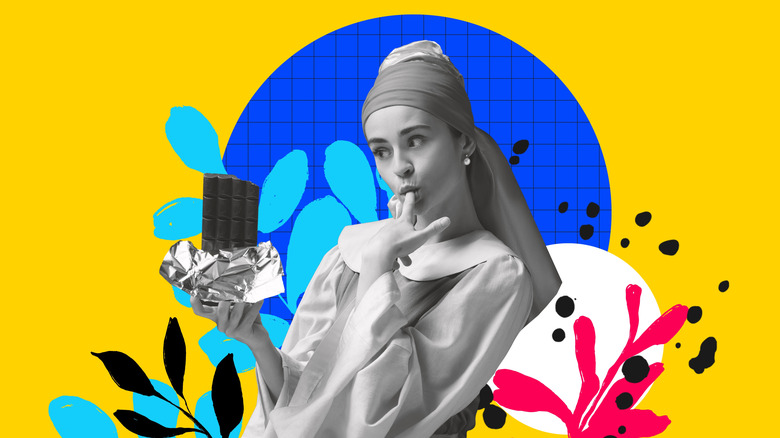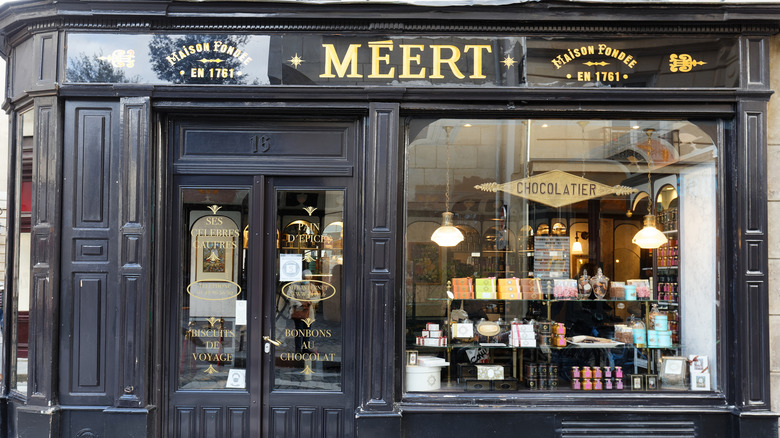Why Chocolate Was Kept A Secret For 100 Years
The decadent, sweet treat we know as chocolate has a long and complex history dating back thousands of years to the early civilizations of Mesoamerica. It was so valuable that at one point (for almost a century), the Spanish elite kept the chocolate recipe a secret to maintain their economic dominance in the cacao trade. This period was during the Age of Exploration, and to prevent others from discovering their cacao gem, the Spanish kept it fiercely guarded. The Spanish royal courts entrusted monks to transform the previously bitter beverage into something much closer to the chocolate we know today by sweetening the drink with sugar and honey.
By keeping the sweetened recipe a secret for 100 years, they could maintain their monopoly on the cacao trade and keep the sweetened chocolate concoction as an indulgence exclusive to Spanish elites. As trade routes expanded, the recipe spread across Europe, and today, the Swiss consume more chocolate than any other country. The Industrial Revolution led to Englishman Joseph Fry's creation of solid chocolate (yes, it took this long!), and the first modern chocolate bar appeared in 1847.
The French did not invent chocolate (c'est vrai?!)
To give credit where it's due, chocolate originated as bitter, ceremonial drinks (likely similar in taste to baking chocolate) enjoyed by the ancient Olmecs, Mayans, and Aztecs. The Olmecs are credited with being the first to cultivate cacao trees. The Mayans called it "cacau," and the Aztecs called it "xocolatl," meaning "bitter water. " The Aztecs drank their version of chocolate cold, often adding spices like chili, vanilla, and cinnamon.
It wasn't until the Spanish encountered cacao during the conquest of the Americas in the 16th century that chocolate began its journey to Europe. Spanish explorers like Hernan Cortés likely brought the first cacao beans and the recipe for preparing the bitter beverage to Spain. While accounts vary about the specifics of this exchange, one thing is clear: the Spanish were the first to alter the drink significantly.
The rest is history. Today's chocolate is enjoyed worldwide in countless forms, from solid chocolate to hot chocolate and hot cocoa (yes, there's a difference), thanks to centuries of innovation, cultural exchange, and a 100-year-old secret that allowed chocolate to evolve into a sweet treat. What started as a bitter ceremonial beverage has evolved into a global delicacy loved by millions.

